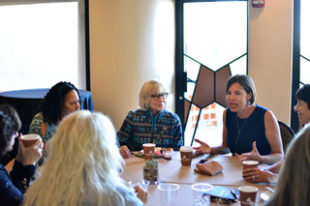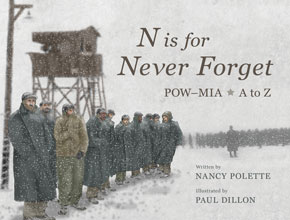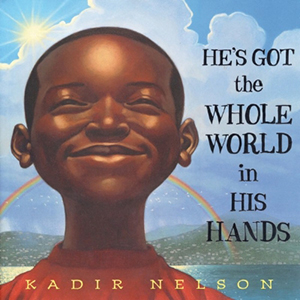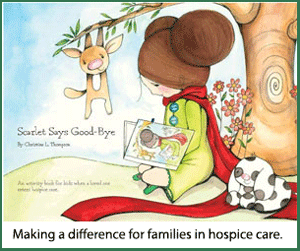Until the mid-twentieth century, women writers were vastly underrepresented. Their stories, in fact, were barely told. Women writers of the Victorian era—which arguably brought more women’s voices to light than any period until the modern era—had to fight hard for their right to write and to publish. They pushed against the expectations of their times, and in many cases risked being ostracized for the pursuit of their craft. Today, Victorian women writers are celebrated, but they were ridiculed, belittled, and scorned by their contemporaries.
In 1929, Virginia Woolf emerged on the scene to suggest in A Room of One’s Own that the only way for a woman to write was to have dedicated space and means. And this is still the case one hundred years along the historical continuum.
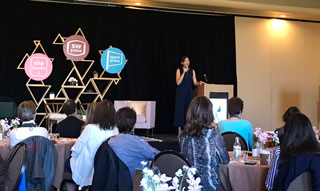
At writers’ conferences and classes there are often more women than men aspiring to write and publish books. As publisher at She Writes Press, Brooke Warner regularly leads retreats for the women whose books the company publishes.
Modern readers, writers, and publishing professionals may question the need for organizations or publishers dedicated exclusively to women writers and their books. Why, they may ask, is it essential, or even important to elevate women’s voices? At writers’ conferences, writers associations, and classes there are often more women than men aspiring to write and publish books. The perception of avid readers, both men and women, may be that there are more books by women authors than men.
Women have made great effort and sacrifices to make their voices heard in the world of literature, but their work is not regarded in the same light as literary work produced by men. A woman who lays bare her life on the page in an honest memoir is more likely than her male counterpart to be criticized for who she is rather than what she writes.
Often it’s assumed that men’s writing is for everyone, while women’s writing is for women. If there are two authors, a man and a woman, both writing about life issues such as relationships, child-rearing, love and longing, the man’s work is more likely to be praised and awarded for his insights and observations, as in the works of Wally Lamb, Jonathan Franzen, and Tom Perrotta, while a woman, at best, will be noted as a great woman novelist. Writers like Meg Wolitzer, Jennifer Weiner, and Jodi Picoult have written widely about this unjust truth.
What women writers want more than anything, and in fact have been fighting for since the late nineteenth century, is to be judged on the merit of their work rather than their sex. Unfortunately, this level playing field is elusive. The book industry—through traditional presses—keeps women in their lanes, publishing women disproportionately in “women’s genres” like romance, mystery, and women’s fiction, while overall publishing more books by men than by women. Books by men also receive more awards and get more high-visibility reviews.
Additionally, reviewers offer indictments against women authors that they wouldn’t dare level at men. Take, for example, the work of Karl Ove Knausgaard, who was widely acclaimed as “courageous” for his six-part, 3,600-page autobiographical novel. Conversely, Roxane Gay’s memoirs and personal writing was dismissed by critics, with one prominent review outlet calling her a “diarist,” despite the multiple published books to Gay’s credit.
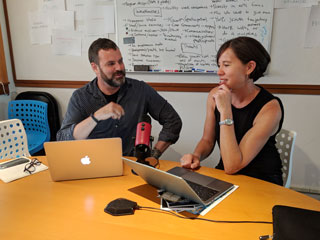
It takes many other voices to elevate the voices that get to be heard. Grant Faulkner of National Novel Writing Month and publisher Brooke Warner cohost a weekly podcast called Write-minded. They interview writers, authors, and publishing industry folks about writing life and offer inspiration to writers.
Acknowledging that women’s voices need to be elevated is a struggle for those who believe history has moved on to a point at which all things are equal. Authors and readers and the general public may argue that discrimination is a thing of the past, that this is the doorstep of a brave new era where decisions about who gets published are only based on the quality of the writing. Although there may be more women than men in publishing, it matters that those at the top with the biggest salaries and decision-making power are mostly men.
Of the books that topped The New York Times adult fiction bestseller list from 1960 to 2015, 37 percent were written by women authors, in comparison with 56 percent by men authors. Similar imbalances exist when it comes to books that receive reviews and awards, and these imbalances have led to decades and centuries of elevating men’s voices by default.
It’s long been understood that the best way to feel compassion toward another person is through shared experience. A book is an offering from an author to share his or her experience, to put oneself in the shoes of another. One of the joys of reading is that it encourages critical thinkers and creates allies.
Acknowledging the inequality that persists in the way things have been done and are being done is the first step toward changing the status quo. The minds and experiences of readers are broadened by reading as many women authors as male authors. As critical thinkers, readers will be able to challenge unbalanced and even sexist reviews of women’s work, to judge the merits of the writing and consider whose are elevated and why.
Dominique Raccah, publisher and CEO of Sourcebooks, says that elevating women’s voices is on par with elevating indie voices, something she’s dedicated her entire career to do.
“When we publish a book, we’re conscious of the impact it has more broadly,” says Dominique. “As an independent publisher, our focus on books that change lives means that we’re looking for authors and projects in which people see themselves. One way publishers can address underrepresentation is by having mindful conversations about what they’re publishing and why.”
It takes many other voices to elevate the voices that do get to be heard. It’s not just publishers, it’s everyone, considering the value of equal representation with each book purchase, recommendation, or book club pick. Diversity of experience creates not only better readers, but better citizens too.
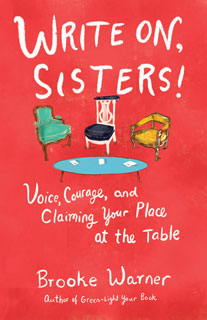 Resources for Women Writers
Resources for Women Writers
Kitchen Table Literary Arts: An online community supporting women writers of color
Kitchen-table.org
Writing Life with Mary Ann Moore: A six-week women’s writing circle
MaryAnnMoore.ca/circlesevents
Redbud Writers Guild: An online community of Christian women creators
RedBudWritersGuild.com/redbud-writers
Tall Poppies: Founded by an author, this group was created to unite authors with readers
TallPoppies.org/for-readers
Amy Sue Nathan’s Women’s Fiction Writers Blog: Posts, plus editing and coaching services
WomensFictionWriters.com
Women’s Fiction Writers Association: A community of writers of women’s fiction
WomensFictionWriters.org/about-wfwa
Additional Resources and Authors mentioned in this article:
Brooke Warner
Web: BrookeWarner.com
TedX talk: “Green-Light Revolution”
Facebook: /WarnerCoaching
Twitter: @Brooke_Warner
Instagram: @Brooke_Warner
LinkedIn: /in/WarnerCoaching
Write On, Sisters!
Info: BrookeWarner.com/books/write-on-sisters
Buy: IndieBound, Amazon
She Writes Press
Web: SheWritesPress.com
Write-minded Podcast: Podcast.SheWrites.com
Facebook: /SheWritesPress, /SheWritesdotcom
Twitter: @SheWritesPress, @SheWritesdotcom
Instagram: @SheWritesPress
Dominique Raccah
Twitter: @DRaccah
Sourcebooks
Web: Sourcebooks.com
Facebook: /Sourcebooks
Twitter: @Sourcebooks
Instagram: @Sourcebooks
LinkedIn: /company/Sourcebooks
IBPA
Web: IBPA-online.org
Facebook: /IBPAonline
Twitter: @ibpa
LinkedIn: /company/Independent-Book-Publishers-Association
Meg Wolitzer
Web: MegWolitzer.com
Facebook: /Meg.Wolitzer
Twitter: @MegWolitzer
Jodi Picoult
Web: JodiPicoult.com
Facebook: /JodiPicoult
Twitter: @JodiPicoult
Jennifer Weiner
Web: JenniferWeiner.com
Facebook: /JenniferWeiner
Twitter: @JenniferWeiner
Roxane Gay
Web: RoxaneGay.com
Photos courtesy of Brooke Warner. Feature photo: Author and publisher Brooke Warner connects in a small group setting at a retreat especially for women writers.
Brooke Warner is publisher at She Writes Press and SparkPress, president of Warner Coaching Inc., and author of Write On, Sisters!, Green-Light Your Book, What’s Your Book?, and three books on memoir. Brooke is also a TEDx speaker and podcaster, writes a monthly column for Publishers Weekly, and serves as chair of the Independent Book Publishers Association (IBPA) board of directors.
This article was first published December 2019.

